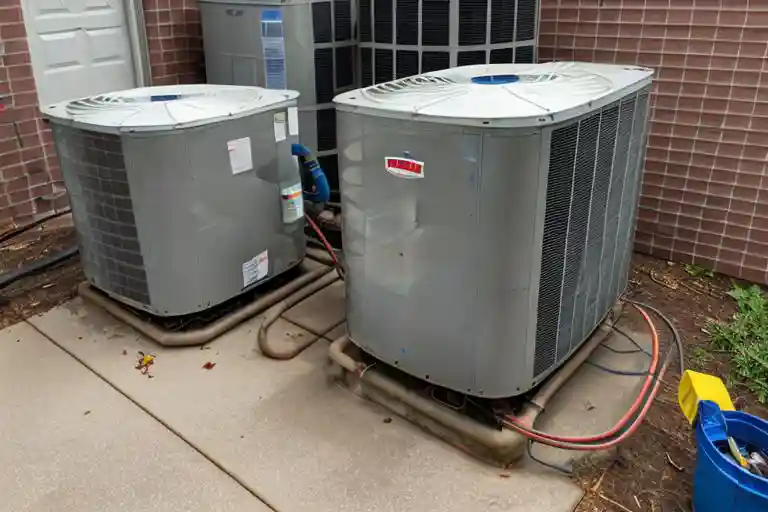A well-maintained HVAC system creates a consistent indoor temperature that offers a desired level of comfort. Regular cleaning and keeping the components of an air conditioner in good condition increases energy efficiency and reduces utility bills. During maintenance, HVAC system parts must be thoroughly assessed to ensure they are functioning correctly. While some people may choose to examine the HVAC system on their own, it is best to hire a professional because they have the knowledge and experience to deal with complex issues. This article discusses what should be included in the maintenance of an air conditioning system and how to go about it.
Examine the electrical connections
Sparking or arcing from loose or corroded connections can cause a fire hazard and damage property.

Is your HVAC system being maintained? Call us, we can help!
To avoid accidental fires, check for unconsolidated electrical components and secure them tightly. Poor electrical connections can cause the entire system to fail prematurely or limit its performance. Ensuring all electrical cables and sockets are well-secured prevents these issues from happening, making your HVAC reliable in all kinds of weather conditions.
Calibrate your thermostat
A faulty thermostat can relay inaccurate readings that cause fluctuations in temperature throughout the house. A qualified HVAC technician can calibrate your thermostat to provide precise temperature readings throughout the day. Not only does it make the system effective but also reduces energy consumption caused by temperature fluctuations. During maintenance, you can identify potential issues that would otherwise cause the HVAC to break down over time.
Check the fans
The HVAC system has fans that regulate the circulation of conditioned air inside the building. When they are not operating efficiently, they can cause uneven distribution of warm or cool air inside the home. An HVAC technician should check the fans working condition when the air conditioner is running. There shouldn’t be any obstructions whatsoever that prevent them from rotating freely. Old fans need to be replaced with new ones to ensure maximum efficiency.
Lubricate moving parts
Because an air conditioning system has many moving parts, it must be lubricated frequently to minimize wear and friction. Applying lubricant on moving parts creates a smooth barrier that prevents corrosion between metal surfaces. The internal components of the compressor move rapidly and require occasional lubrication for optimal performance. You can either choose between grease and oil for lubricating your HVAC system. Although petroleum-based lubricants are popular, synthetic lubricants are more resistant to deterioration and oxidation.
Diagnosing sensors
When the sensors in an air conditioning system fail, it causes performance issues in various sections of the building. Each brand of sensor has different sensitivity levels and has its own disadvantages too. They may eventually need replacing because they tend to lose their acuity over time. If you find yourself hovering over the same sensor unit when you encounter performance issues, then it would be a good idea to replace them with new ones.
Check the condensate
This HVAC system component disburses moist air drawn from within your home to the outside of the building. The water gathers in a drain pan, which is usually positioned near the outdoor unit of the air conditioner. If you don’t notice any water pooling around this area when the system is running, there could be a blockage in the line. Take the time to clean the drain line to avoid water from entering the house. When it becomes clogged, it can have an impact on your indoor air quality by absorbing impurities that are subsequently circulated back into the home.
Refrigerant levels
A refrigerant that is very low puts reduces the air conditioning system’s efficiency. When it isn’t refilled in time, it can cause overheating and damage the motor and electronics. Ice buildup may form around the coil and cause it to crack. When it is set to the right level, it cools your home effectively while maintaining a consistent temperature indoors. A HVAC professional needs to inspect your refrigerant for leakage signs and repair it before it can be recharged. A few signs of that the refrigerant has a leak is when you hear a bubbling sound when the AC is on. It may also take longer for the air conditioning system to achieve the desired temperature indoors.
A well-functioning air conditioner operates smoothly and efficiently all year to maintain a cozy indoor environment in all weather conditions. Even if there is a checklist of items that should be inspected, it is crucial to have an HVAC professional on site as they are more capable at dealing with complexities. Cleaning and maintaining your AC frequently leads to significant cost savings and also extends its lifespan.
